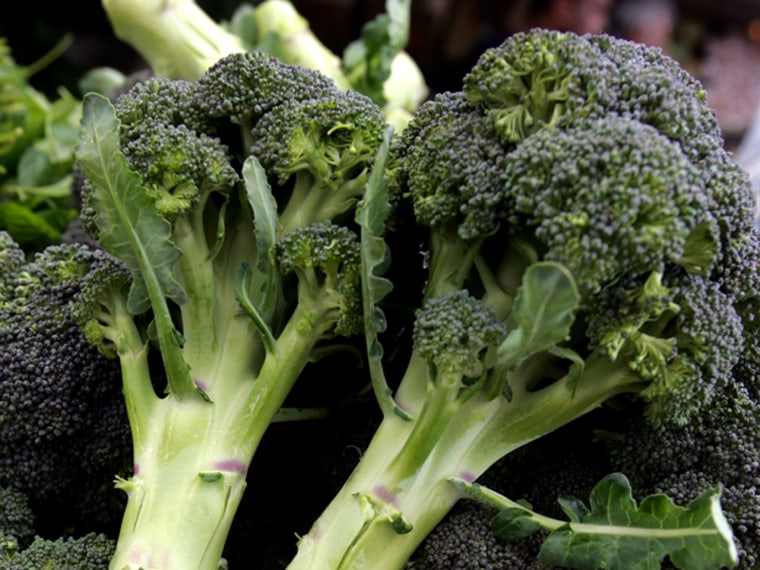By Elizabeth Narins

Whether you ate the whole burrito, drank too much beer, or wolfed down your dinner more quickly than Allyson Felix ran the 200m in the 2012 Olympics (21.88 seconds!), the outcome is the same: You're bloated. Distended. Uncomfortable.
Feeling like a balloon is far from ideal and worthy of complaint. But can it be avoided? Here, we call in registered dietitian Keri Glassman to get to the core of our belly woes.
Q: Scientifically speaking, what's going on in there when my stomach begins to resemble a balloon?
Bloating is a buildup of gas in your body, says Glassman. The culprit could be the digestion of certain foods which produce gas as a byproduct, drinking carbonated beverages, or eating too quickly, because chowing down without coming up for air can actually lead you to swallow air along with your food, she says.
Q: Which foods are most likely to cause bloating?
When digestion-triggered gas buildup is to blame for your bloat, Glassman says that these foods may be to blame:
- Beans and vegetables like broccoli, asparagus, and Brussel sprouts: All of these foods contain raffinose, a complex sugar that, when digested, produces extra gas.
- Milk products: Because our bodies lack the enzyme needed to digest lactose, the natural sugars found in milk, consuming milk or milk-based products such as ice cream and cheese can cause digestive disrupt. (Satisfy your dairy cravings with the best milk alternatives.)
- Fruits: Apples, peaches, and prunes all contain sorbitol, the naturally-occurring sugar added to sugar-free candy and gum that can be hard for the intestines to break down, says Glassman. The result? You guessed it: Gas.
- Chewing gum: Most sugar-free gum contains artificial sweeteners, which can be very hard for the intestines to breakdown and lead to excess gas, says Glassman. Moreover, swallowing air while you chew gum can lead to even more bloating. (Suffering from serious tummy troubles? Learn how to stop any stomach pain.)
- Oat bran, peas, and legumes: Soluble fiber found in these foods isn't broken down until late in the digestive process, thus creating gas. Looking to keep your digestive health up to snuff without the gassy side effects?
- Insoluble fiber, (also referred to as "nature's broom", notes Glassman), is a safer bet than soluble fiber, as it keeps the digestive tract moving along without creating much gas.
Q. Besides avoiding probematic foods, how can bloating be prevented?
Glassman recommends these strategies to nip bloat in the bud:
Swallow this supplement: Known as the "good" bacteria, probiotics are intestinal bacteria that can help break down some foods, and help you sidestep digestion-triggered gas and bloating. Probiotics can be taken via a supplement, but you can also find them in yogurts.
Try munching on asparagus: the stalks contain certain prebiotic-like compounds, which also help in digestion.
Chew on this: Papaya and pineapple both contain digesting-aiding enzymes called papain and bromelain, respectively.
Eat this way: Chew your food slowly, and take your time to make sure you don't swallow excess air while eating.
Do this after dining: Walking after you eat move things along in the digestion process, so take a walk (even if it's short one) after your meal.
More links from Women's Health: